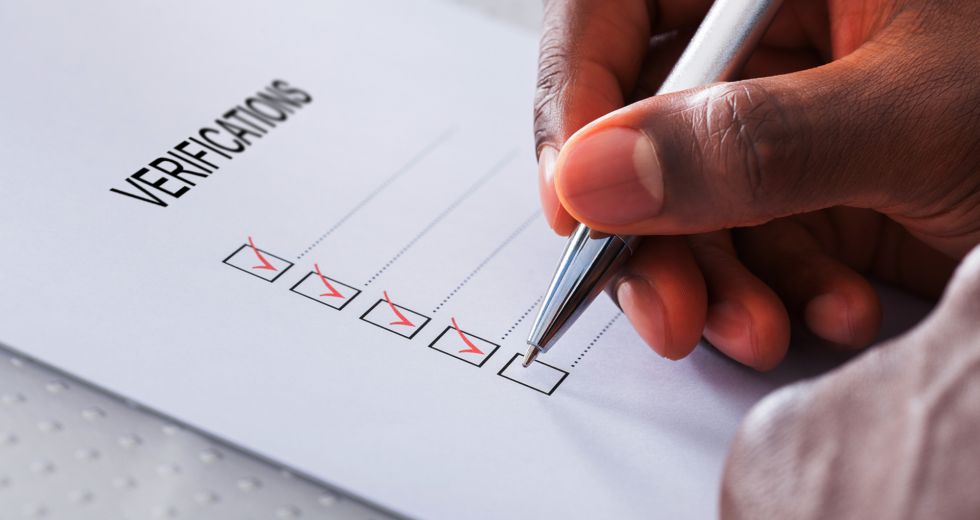Assumptions are a lazy person’s resolve.
I know we’ve all heard the many definitions of “assuming things” and the dangers therein. My business law teacher in High School had several, simple anecdotal sayings he would share with us on a daily basis. Some of these I recall from time to time, but one has stayed at the forefront of my mind for many years…
“Don’t never assume nut’n.”
I’ve collected a few other dangerous things to leave to assumptions:
- Never assume a snake is dead
- Never assume a gun is empty
- Never assume it’s not poisonous
- Never assume you won’t need directions.
- Never assume you will just remember.
Here’s a really scary one: “Never assume a person will do the right thing.” YIKES! I can tell you from pathetic and embarrassing experiences that not everyone is as good of a person as they may appear or as they want to be seen.
Some people point to the old adage “Trust but verify,” which was made famous by that Iceland summit between Reagan and Gorbachev back in the eighties, but has actually been around for aeons. And while it has some usefulness, allowing people to move forward with relationships but still “checking up” on those they’re involved with, I’m a bit more cautious still. In the world of business and financial arrangements, that initial dose of trust might come with a contract or a binding financial relationship, so by the time your “verify” reveals something dangerous, the damage might already be done. What expense has the trust caused you or your business? And is there perhaps a better alternative? A Russian revolutionary leader once said, “A healthy distrust is a good basis for working together.” There doesn’t seem like much room for preemptive trust in that equation.
So how do you know when to extend an assumption of trust? And how far do you let it go? I was taught a long time ago that the two most proving dynamics in any relationship (love-war-business) are ‘time and consistency.’ The evolution of a relationship will expose a person’s core character. This approach would have saved me a LOT of time and money, had I followed that rule instead of quickly trusting people. I suppose there are circumstances when trusting might be safer, but if you are risking anything (time-money-safety-relationships), it might be a better idea to really KNOW who you are dealing with before you commit.
When I first started in the world of Bounty Hunting, I found out real quick that in the interest of possibly life or death, I could not believe a single word a person told me until I first verified that claim. “No she’s not here” – “Yes I will meet you later” – “He’s a great guy” – “that just doesn’t sound like her”. The time this hit me hardest was when one day I was going to arrest a young lady I had already confirmed was living with her mother. I parked down the street and as I walked up to the mom who was in the front yard doing gardening, I told her why I was there. She could have been my own mother! She was well dressed, obviously well educated and spoke very clearly. Even had the stereotypical straw hat all good gardening moms wore. She indeed seemed quite genuine…but that all changed in a micro second. I asked her if she knew where I could find her daughter so we could get things straightened out, “Oh is she in some kind of trouble? We worry so much about her, please let me know if you find her and let me know she is alright.” When I asked if it would be okay if I looked inside, she acted surprised since she had already insisted there was no one else at home. Just about then I heard the back door slam. As I rounded the corner to the house, I saw her…running straight down the alley in her PJ’s. Now, that situation wasn’t dangerous or life threatening, but it could have been…very easily. From that day forward…against my inner desire to trust people and believe what they told me, I decided to revive the old saying from my Business Law teacher; “Don’t never assume nut’n”. And often times to the frustration of others, I simply did not naively believe something until I had verified it. Sure I took longer to do things, but I simply was NOT going to go blindly in to any situation. Period.
So, where does that leave us with trust in the ‘real world’? I believe we are all created with a special instinct. Call it intuition or a sixth sense or just a feeling in your gut. Intuition is not logical or easily explained. Instead, it feels natural, almost primal. Go with it! Trust your gut and know when it might be the time to walk away from something in the interest of self preservation. Just be careful in whom you place your trust and to what extent. Recovering from a failed relationship can be quite costly (time, money, love) and potentially even cause a major setback. Listen to your gut but don’t live in fear and cynicism. A healthy, informed kind of trust allows us to move forward much more efficiently as opposed to doubting every one and every thing.
Ultimately, it’s up to you to decide if the desired outcome is worth the risk of trust–or the risk of waiting to find out the truth.

